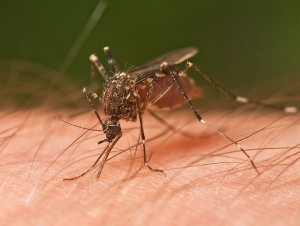 What is Zika?
What is Zika?
The Zika virus is a generally mild illness that is spread primarily through the bite of an infected mosquito.
The current Zika virus outbreak began in May 2015 in Brazil. This outbreak led to reports of a neurological disease called Guillain-Barré syndrome, and pregnant women soon reported giving birth to babies with birth defects such as microcephaly.
The outbreak has since spread to other countries and areas. This prompted the Centers for Disease Control and Prevention (CDC) to issue travel notices to regions where the Zika virus transmission is ongoing.
What is Pennsylvania doing to protect its residents?
In response to the emerging disease, the Wolf Administration has created a Zika Response Plan.
The Pennsylvania Department of Health and Department of Environmental Protection have announced this Zika Response Plan to prepare for Zika virus testing, to enhance surveillance and control of mosquito populations that can spread Zika virus, and to enhance surveillance for Zika cases in Pennsylvania.
What are the symptoms of the Zika virus?
Common symptoms of Zika virus disease are fever, rash, joint pain, and conjunctivitis (red eyes).
How is the Zika virus spread?
The Zika virus is mainly spread from the bite of an infected mosquito to a person. The Zika virus can spread through sexual contact from a male partner who has been infected with the virus. Although less common, the Zika virus can also be spread from a mother to baby during pregnancy or during the time of birth or through blood transfusion.
How dangerous is the Zika virus?
Most people infected with Zika have mild symptoms or no symptoms at all.
However, pregnant women who are infected with Zika have a greater risk of babies born with microcephaly, a birth defect where the baby’s head is smaller than expected, or other birth defects. In past outbreaks, there have also been rare reports of Guillain-Barré Syndrome and other neurological conditions.
People rarely die from the Zika virus.
Is there a treatment or a vaccine for Zika?
There are no vaccines or medication to prevent or treat Zika virus infections. If someone becomes ill after being infected with the virus, the symptoms should be treated by getting rest, drinking fluids to prevent dehydration, and taking medicines such as acetaminophen to relieve fever and pain.
Aspirin or other non-steroidal anti-inflammatory drugs, like ibuprofen or naproxen, should be avoided.
Is it safe for me to travel to other countries?
The CDC has issued travel notices to regions where the Zika virus transmission is ongoing. Travelers in these destinations should take extra steps to protect themselves from mosquito bites.
Pregnant women (or women planning to become pregnant within 3 months of travel) should avoid travel to regions with active Zika virus transmission.
If you’re planning to attend the 2016 Olympics, take extra precautions to keep yourself safe.
How can I protect myself from the Zika virus?
The best way to prevent Zika is to avoid mosquito bites. To do this:
- Use an EPA-registered insect repellent. EPA-registered repellents are safe for pregnant women and children to use, but be sure to check the product label for any warnings and follow the instructions closely.
- When indoors, use air conditioning, window screens or insecticide-treated mosquito netting to keep mosquitoes out of the home.
- Reduce the number of mosquitoes outside the home or hotel room by emptying or routinely changing standing water from containers such as flowerpots, pet dishes and bird baths.
- Wear long sleeves and pants when outdoors.
You can also protect yourself by avoiding sexual contact with a partner who traveled to a Zika-affected area or use a condom correctly each time you have sex. For more information, visit the Zika Virus Prevention page.
Have there been cases of Zika in Pennsylvania?
There have been cases in travelers who have returned from areas where Zika virus is common.
Local transmission of Zika virus (virus acquired from local mosquitoes) has not been identified in Pennsylvania or anywhere in the continental U.S.
Can my pets get Zika?
There have been no reports of pets or other types of animals becoming sick with Zika.
What should I do if I think I have Zika?
Contact your healthcare provider if you have symptoms of the Zika virus and have been to an affected area in the past two weeks or had recent sexual contact with a male partner who was exposed to Zika. Your healthcare provider may test your blood or urine for the Zika virus and other similar illnesses. If you are pregnant and traveled to a Zika-affected area within the last 12 weeks, your healthcare provider may test your blood or urine for the Zika virus even if you have not experienced symptoms of Zika virus.
What if I have the Zika virus? How can I protect others from getting sick?
During the first week of infection, Zika can be found in your blood and passed to a mosquito that bites you. An infected mosquito can then spread the virus to other people. To prevent others from getting sick, strictly avoid all mosquito bites during the first week of illness.
Zika virus can also be spread during sex by a man infected with Zika virus to his sex partner(s). It is still unknown how long the virus can be spread through sex, but it may be 6 months or longer. To prevent Zika from spreading, use condoms correctly every time you have sex or abstain from sex. How long to continue using a condom or waiting to have sex depends on the couple’s situation and concerns.
Zika virus could also be spread through blood transfusions. If you have had the Zika virus, do not donate blood at this time.








